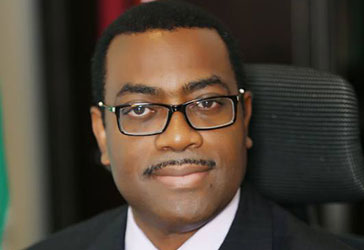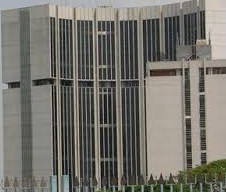New AfDB president vows to deliver more inclusive economic growth

BY ALAN GREEN
In a statement issued this Sunday three days after being elected president of the African Development Bank, Nigerian former minister of agriculture and rural development, Akinwumi Adesina, promised “to work hard with all African governments to deliver more inclusive economic growth across our beautiful continent.”
In the statement, after the customary expression of gratitude to various officials and other people who have contributed to his rising to the highly-sought-after position, Adesina stated:
“Together, we can build a stronger and more prosperous Africa, with smart infrastructure, energy for all, a strong private sector, new economic opportunities that will deliver quality jobs and hope for millions of youths and women, revival of Africa’s rural economies to lift many out of poverty, and regional integration for shared prosperity.”
The new pan-African banker said he’s “hopeful and excited about the prospect of building on the great work of President Donald Kaberuka [the out-going president] at the AfDB.”
Adesina, who will take the helm of the financial institution in September, says Africa has assets and abounds with opportunities that he plans on tapping into: “I am thankful to have been given the chance to travel to so many parts of the continent–small states, fragile states, and large states across Africa–to feel the pulse of African leaders and peoples,” he said, adding: “I met with young people and women–Africa’s greatest assets, with small- and medium-sized enterprises, and with Africa’s business leaders. From rural areas to burgeoning cities, I saw vast opportunities for a greater and more inclusive Africa.”
The future AfDB president—a 55-year-old development economist with a Ph.D. from Purdue University—landed the high-profile job after six rounds of voting, winning over seven other very highly-qualified candidates. He grabed nearly 60% of the bank’s board of governors’ votes to be elected AfDB’s eighth president since the bank’s inception in 1964.
Adesina served as agricultural minister in the cabinet of former Nigerian president Goodluck Jonathan—which he joined in 2011—leaving an impressive legacy. He literally revived the agricultural sector, boosting food production by 22 million tons and by reducing food imports by more than a third. According to official records, he also created 3 million jobs during his tenure.
 The African Development Bank is among the major lending financial institutions in Africa, operating primarily in the infrastructure development area, with the overall objective of poverty-alleviation. In 2013, the bank approved nearly $3.16bn in loans to member countries. According to AfDB’s own records, Africa’s needs for infrastructure investment over the next decade is nearly $100bn.The bank’s lending capacity, officials say, usually meets only a small fraction of the needs, which explains the institution’s efforts to play on its excellent AAA credit rating to attract private financing for projects. New lenders, notably the Chinese government, have assumed a crucial role in assisting African countries to meet the need for infrastructure development through bilateral cooperation.
The African Development Bank is among the major lending financial institutions in Africa, operating primarily in the infrastructure development area, with the overall objective of poverty-alleviation. In 2013, the bank approved nearly $3.16bn in loans to member countries. According to AfDB’s own records, Africa’s needs for infrastructure investment over the next decade is nearly $100bn.The bank’s lending capacity, officials say, usually meets only a small fraction of the needs, which explains the institution’s efforts to play on its excellent AAA credit rating to attract private financing for projects. New lenders, notably the Chinese government, have assumed a crucial role in assisting African countries to meet the need for infrastructure development through bilateral cooperation.


